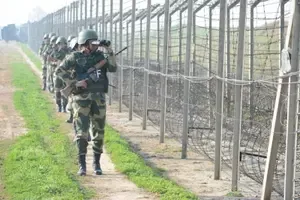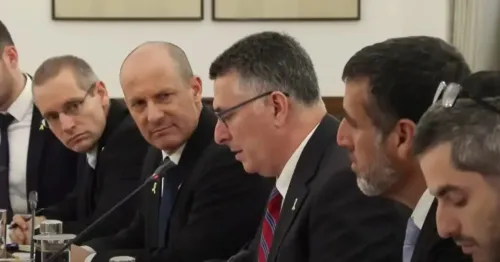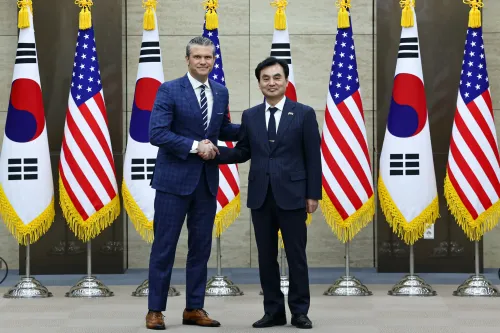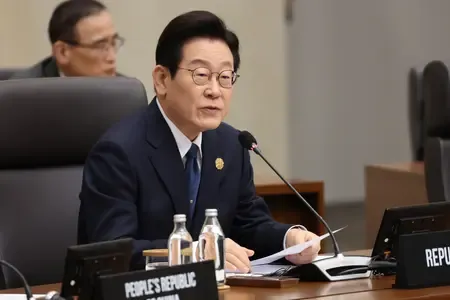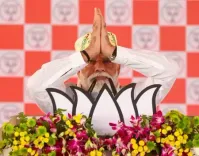Is Trump Planning a Visit to South Korea Next Month?
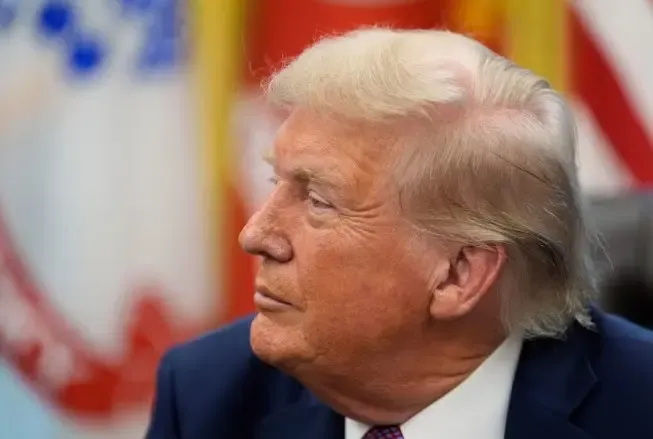
Synopsis
Key Takeaways
- Trump's visit to South Korea aims to enhance economic collaborations.
- A meeting with Xi Jinping could reshape trade relations.
- Focus on defense and civil nuclear cooperation is also expected.
- Potential discussions with Kim Jong Un may occur during the trip.
- Ongoing U.S.-China trade negotiations continue to be a priority.
Washington, Sep 7 (NationPress) US President Donald Trump and his senior advisors are quietly gearing up for a trip to South Korea next month to attend the Asia-Pacific Economic Cooperation (APEC) trade ministers' meeting where a potential encounter with Chinese President Xi Jinping is on the table, as reported by CNN citing Trump administration officials.
The officials indicated on Saturday that serious talks are ongoing regarding a bilateral meeting during APEC, although no definitive plans have been finalized.
The summit, scheduled to take place in Gyeongju from late October to early November, is seen as a pivotal moment for Trump to engage with President Xi.
During a telephone conversation last month, Xi extended an invitation to Trump and his wife for a visit to China, which Trump reciprocated, though specific dates remain undecided.
Final arrangements are still under discussion, and it is uncertain whether Trump will include additional destinations in his itinerary.
Administration officials emphasized that this visit provides a chance for the President to secure further economic investments in the U.S. — a priority during his recent international engagements, including trips to Saudi Arabia, Qatar, and the United Arab Emirates.
"A visit to South Korea is under consideration, focusing on economic collaboration," a White House official told CNN.
Additional objectives include discussions on trade, defense, and civil nuclear cooperation, the official added.
Trump’s presence in the area could also create an opportunity for another meeting with North Korean Leader Kim Jong Un, although Kim's attendance is uncertain.
Officials are placing more emphasis on organizing a potential meeting with Xi.
During a recent meeting, South Korean President Lee Jae Myung invited Trump to attend the APEC summit and suggested it could be a good setting for a meeting with Kim, according to sources involved in the discussions.
Earlier on Saturday, Trump expressed his willingness to meet Kim, stating, "I will do that, and we'll have talks. He'd like to meet with me. We look forward to meeting with him, and we'll make relations better."
This anticipated trip to South Korea arrives at a delicate moment in Trump's relationships with both Xi and Kim.
Recently, Xi hosted Kim, Russian President Vladimir Putin, and Indian Prime Minister Narendra Modi in Beijing — a meeting Trump criticized despite his claims of strong personal ties with these leaders. This assembly coincided with a significant military parade showcasing China's armament capabilities.
"May President Xi and the wonderful people of China have a great and lasting day of celebration. Please give my warmest regards to Vladimir Putin and Kim Jong Un as you conspire against The United States of America," Trump remarked on social media while the parade occurred.
On Friday, Trump posted a picture of Xi, Putin, and Modi, commenting, "Looks like we've lost India and Russia to deepest, darkest China. May they have a long and prosperous future together!"
In a recent Oval Office address, he noted that the military parade was partially intended for him to observe, which he did. "I understood the reason they were doing it, and they were hoping I was watching — and I was watching," Trump stated, describing it as a "beautiful ceremony" and "very impressive."
"My relationship with all of them is very good. We're going to find out how good it is over the next week or two," Trump said during a meeting with Polish President Karol Nawrocki.
A potential Xi meeting also coincides with ongoing tensions regarding Trump's tariffs, as Washington and Beijing have been engaged in a tit-for-tat over trade policies, with China being a primary focus of Trump's administration.
U.S. and Chinese officials are participating in negotiations, including two in-person meetings with leading economic advisors from both nations in Europe, aimed at reaching a trade agreement.
Trump has postponed increasing U.S. tariffs on Chinese products, which were set to revert to their peak levels from April — a time when the trade war between the two largest economies was at its peak — as discussions continue.
In April, Trump instituted a 145 percent tariff on Chinese imports, prompting China to retaliate with a 125 percent tax on U.S. goods.
These tariffs were expected to resume last month, but Trump signed an executive order to pause the higher rates until November.

